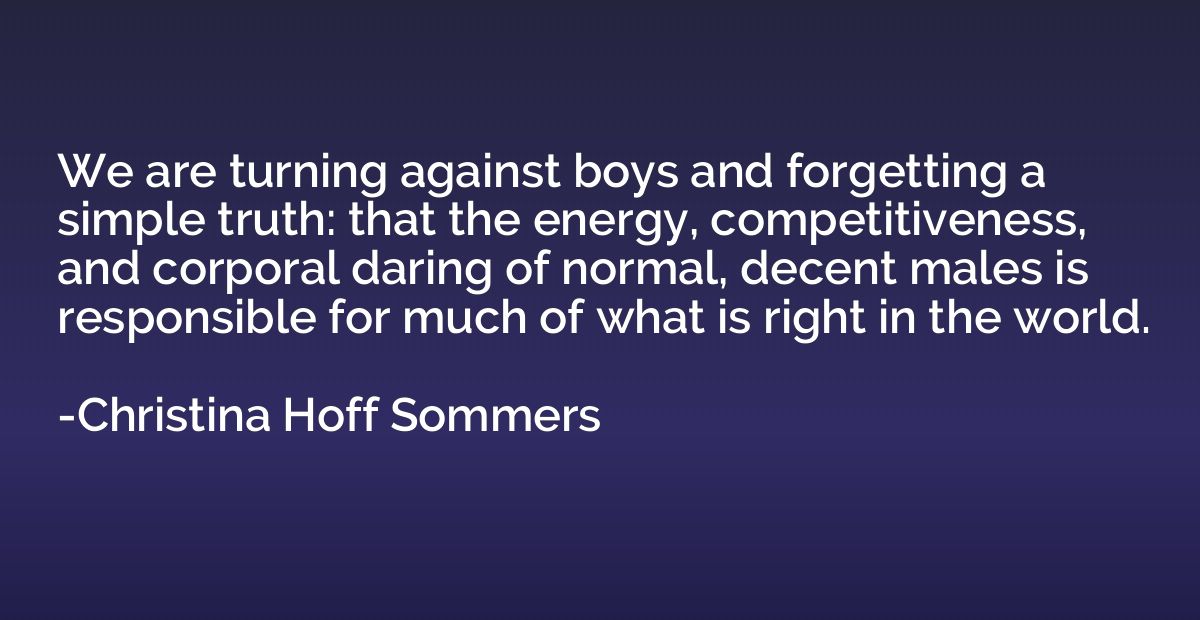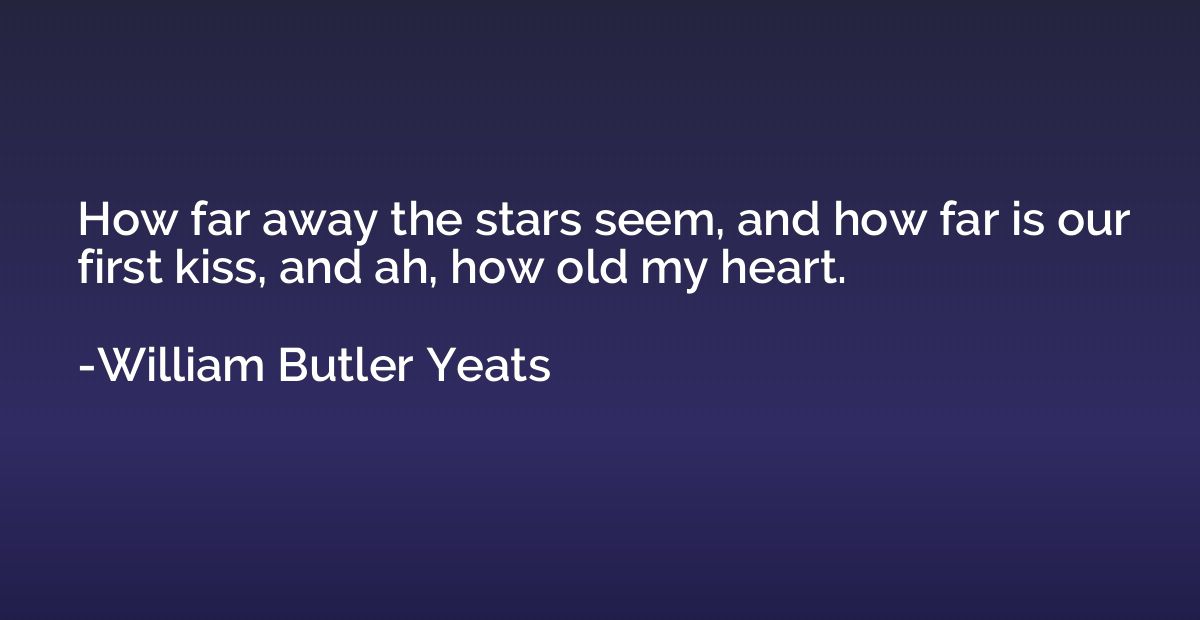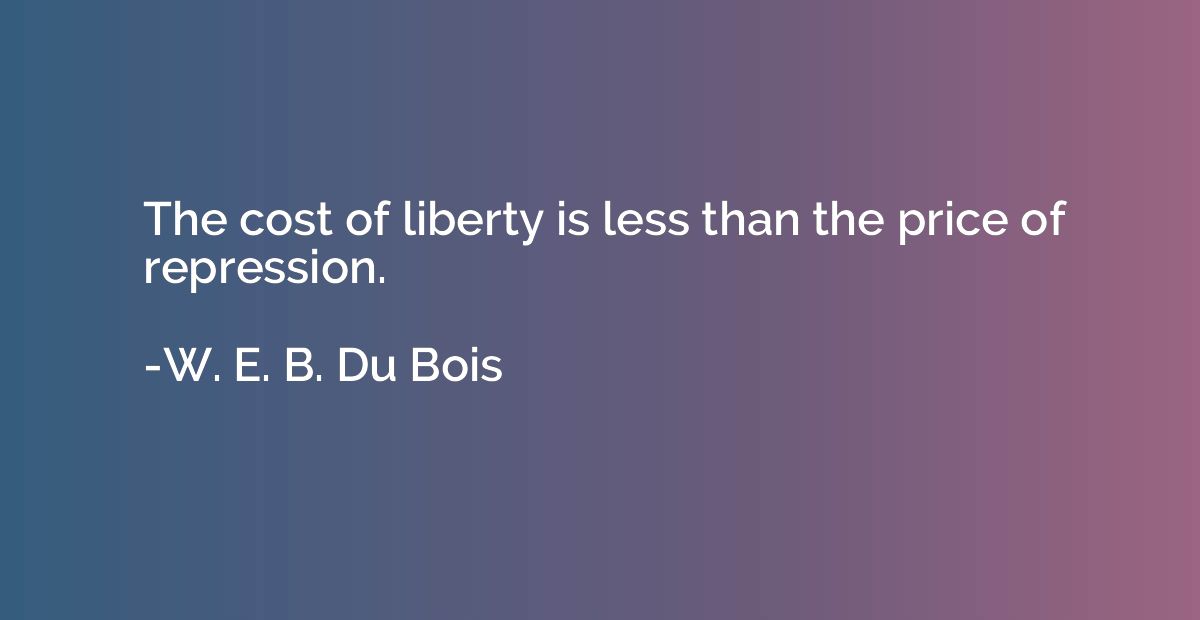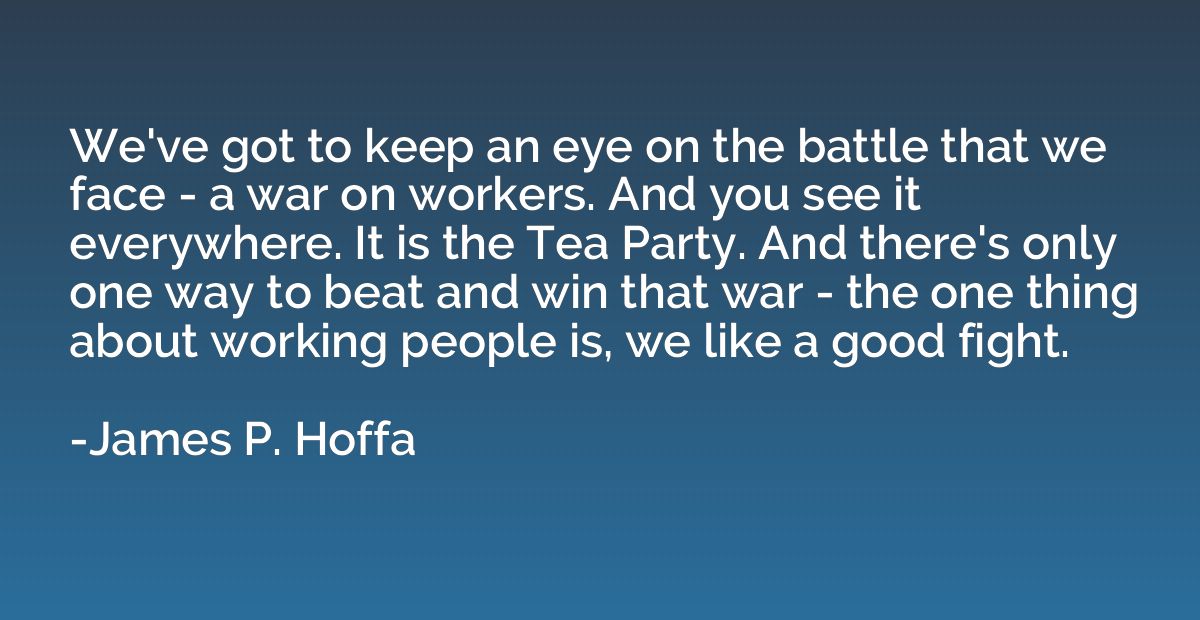Quote by William Blake
Want of money and the distress of a thief can never be alleged as the cause of his thieving, for many honest people endure greater hardships with fortitude. We must therefore seek the cause elsewhere than in want of money, for that is the miser's passion, not the thief s.
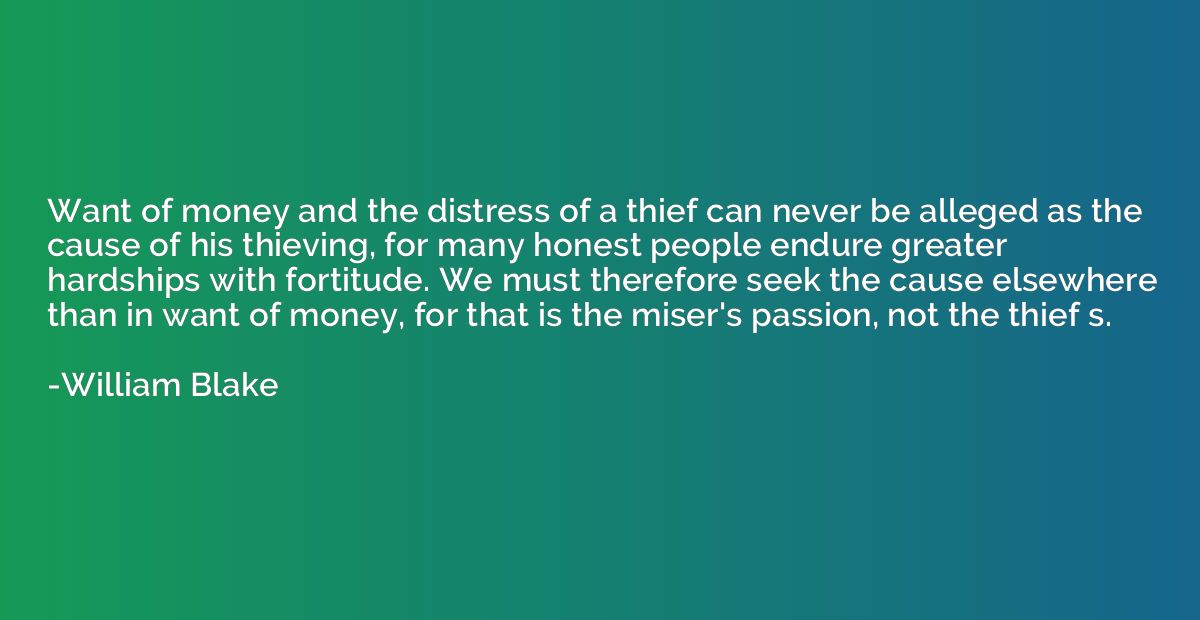
Summary
This quote suggests that lack of money and desperation cannot be justified as reasons for one's inclination to steal. It argues that there are many honest individuals who face even greater difficulties but do not turn to theft. The quote challenges the assumption that poverty leads to criminal behavior and asserts that the motive for thieving should be sought elsewhere. It implies that those who steal are driven by misguided passions and desires, rather than simply by their financial circumstances.




